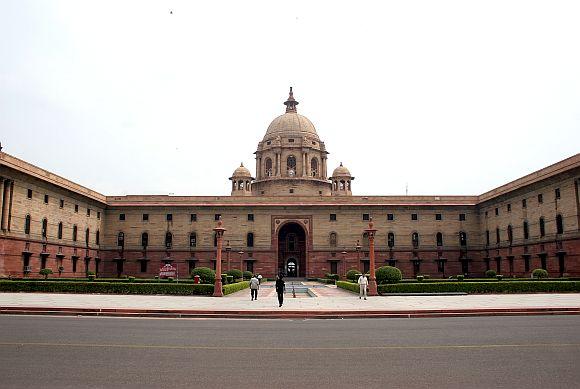
As things exist, the defence ministry is just a book-keeper. It has no responsibility for operational preparedness. It takes no responsibility for equipment deficiencies. That is left entirely to the individual services, which is one of the big, big shortcomings.
The defence ministry takes no responsibility for India's war-waging capabilities and is just the supervisor. The individual services are made responsible.
Nobody however, has the final answer. The army commanders' or three-star officers' purchasing powers are limited to Rs 500 million ($10 million), which is nothing in the equipment bazaar. That budget is largely for fuel and reserves and not for capital expenditure or force modernisation.
As far as equipment acquisition is concerned, the problem is that every single deal that we have had over the last 10 years has gone into some kind of investigation either by the Comptroller and Auditor General or the Central Vigilance Commission or the Central Bureau of Investigation.
...
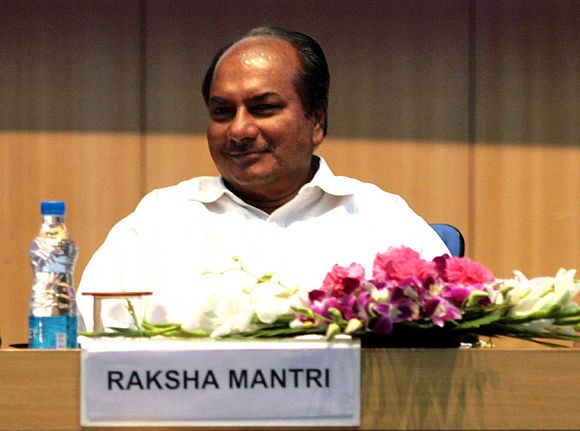
Everyone knows that the problem lies in decision-making.
Because of these inquiries, officials in the defence ministry are terrified of taking any decisions. They would much rather wait out their tenures than take a decision.
A K Antony, who has presided over the defence ministry for the last four years, is one of the major hurdles.
He indicated that he wants probity and says that he is willing to sacrifice operational preparedness over probity.
While nobody is saying that there should be dishonesty or corruption in defence deals, there has to be a system that is more accountable and efficient than the one prevailing.
...

The army is still following the old British inventory system. So what is required today is a total and complete revamp of these systems.
There must be some kind of National Military Commission or National Defence Commission which must sit down and examine the approach to procurement, match it with military doctrines, match it with industrial capabilities and then come out with procedures which are swift.
This commission must decide India's policy in a period of six to eight months. The report must be accepted within a year before the actual implementation begins. If things continue in this tardy way, I think, the civil-military schism will increase because you have an unprofessional defence ministry which has people from animal husbandry and such unrelated fields who do not perform.
By the time these officials actually get to understand the defence ministry's workings -- which are very complex -- they are transferred out. They have no stake in the ministry as they are not responsible for building India's military capability.
...
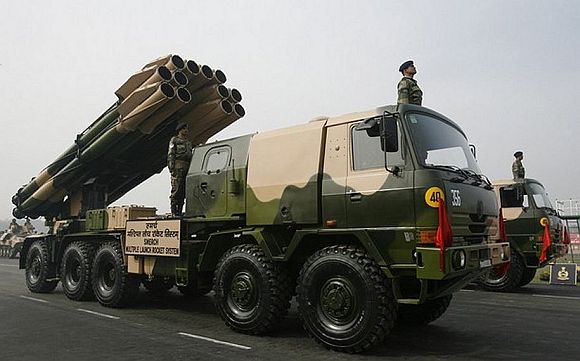
India, the world's largest weapons importer
India is today the world's largest weapons importer. But there are lots of ad-hoc purchases.
Basically, most armies in the world strive to have 40 per cent of the latest equipment, 35 to 40 per cent of equipment that is workable and serviceable and which can be upgraded over a period of time, and 20 per cent which is obsolete.
Unfortunately, the Indian Army has it the other way round. The majority of its equipment today is obsolete. And the modern equipment that it has is not easy to integrate with the rest.
The communications systems, for instance, in the army, navy and air force are separate, spawning a situation in which they are unable to talk to each other. If you go to the joint operations room, you will get three different pictures from the individual services. So inter-connectivity is a problem.
...
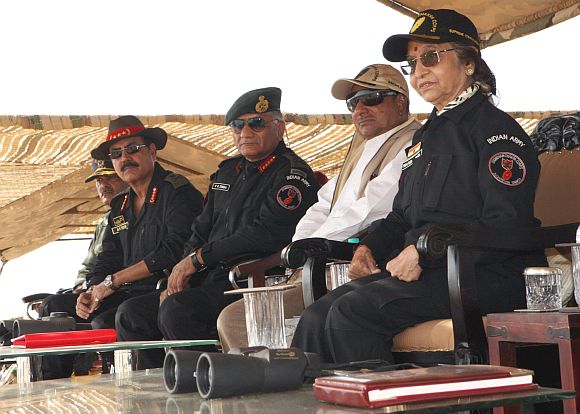
We have, however, built a certain amount of capacity, but that capacity has not translated into capability.
You can have five cars in your garage, but the capability for you to use them, to transport yourself and your family and to use it economically and efficiently and to the optimum use is questionable. So you have capacity, but not capability.
Politicos versus soldiers
I think individually some of our political leaders are professional or intelligent enough to understand the military but there are no votes to be got for creating military efficiency.
So I don't think they are particularly interested in spending much time trying to grasp its intricacies. It is not that they are ill-informed. They are not bothered.
...
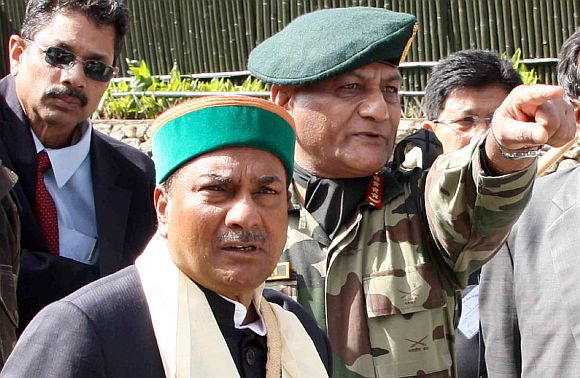
When Kargil happened, (then Indian Army chief) General (V P) Malik made the statement that we will fight with what we have -- because the equipment profile of the Indian Army was as bad then as it is now.
However, Kargil was a skirmish, it was not a war.
The problem is bigger than General V K Singh and Antony. General Singh will retire in May. Antony will stop being defence minister in a few months or some years. The issue of modernisation is much bigger.
First, civil-military relations have to be restored despite all these deplorable statements everyone is making. Second, the equipment profile of the Indian forces, which to me is more important, must improve.
...

We must not forget that India today is a nuclear weapon state. So it has to undertake the entire spectrum of conflict from nuclear to counter-insurgency operations and needs a range of capabilities.
A nuclear weapon state is in a completely different league.
Its command and control structure, its equipment profiles, its platforms have to be of a certain sophistication, which they are not in India's case. So that remains a massive problem for Indian planning -- because nobody understands this in a holistic way.
We have a complete mismatch between the highly sophisticated and the very basic. To integrate these two and to make them work in tandem and efficiently is a challenge. The armed forces are buying very sophisticated pieces of equipment, but they are not integrating it with other processes so it remains one-off.
Watch this space for the final part of the series...